|
Buying a house in Taiwan can be confusing and stressful. It is one of the most important decisions you will make in your life. To even consider buying a house in Taiwan, you have probably lived here for years, so many of the things I will mention in this blog may not be new to you.
I have spent quite a few years looking for houses and saving money for a down payment, as well as figuring out all the costs and other factors involved in purchasing the right house. Also, I recently just bought a house in Taipei in 2021. I have created this guide and FAQ to help people understand the buying process, finding the right house, and saving the right amount of money needed to make a move. For our blog covering our actual experience buying a house, see this blog here. For our blog covering our actual experience renovating a house, see this blog here. The following is my personal insight as an American looking for houses mainly near Taipei City.
26 Comments
CTCB Bank office building in Nangang, Taipei
Taiwan's working environment can be confusing to those who are learning about this topic for the first time. There is a different work culture here than in other countries, and expectations in the workplace are not the same. In this blog, we will answer some frequently asked questions about working in Taiwan.
Foreword: Please note that in the following blog I will share my personal views. As you can tell, I am biased and I prefer American work culture. Overall, I think Taiwan's work culture is stuck in the past, is based on a manufacturing economy, and needs to improve to accommodate modern office work. My views are based on my experience of working in very traditional Taiwanese work cultures over ten years in Taiwan. Not every Taiwanese company has these problems and some foreigners in Taiwan are lucky to work for companies with more western oriented work culture, but according to my experience with others working in Taiwan as normal employees (not on secondment assignments) the following will be true. How are communication styles different between Taiwan and the West? Taiwanese communication style is more indirect, formal, and hierarchical, while American communication style is more direct and informal. In Taiwan, it is customary to show respect to authority figures and senior colleagues by using formal titles and deferential language. Direct confrontation is also avoided, and criticism is often delivered in an indirect manner. In contrast, Americans tend to be more direct in their communication style, often speaking their mind freely and openly expressing their opinions. Hierarchy is another area where Taiwanese and American work cultures diverge. In Taiwan, hierarchy is deeply ingrained in the culture, with respect and deference paid to those in positions of authority.
As a foreigner in Taiwan, if you have preschool-aged children it could be a stressful experience to try to find an appropriate place for your child to go to school. Luckily foreign children have some priority when it comes to the public preschool lottery. Also, some preschools also have government subsidies. In this blog, we will give you a general overview of the preschool system in Taiwan.
Please note that the below information is only a general overview and details may vary for each school. I am giving this advice based on my experience as a foreign parent of two children who have gone through preschool in Taiwan. The numbers below were taken from the government website. For the latest information, please check the government website. Taiwan monthly child stipend for children 5 and under: 5歲幼兒就學補助 First, let me start off by telling you that there is a monthly stipend for children of Taiwan citizen parents who are aged 5 and under, and are not enrolled in preschool. For the first child, the stipend is 5,000 NT, for the second child 6,000, and for the third child, it is 7,000. Once you enroll your child in public or government-sponsored preschool, this subsidy stops.
Following up on our article about the differences in work culture between Taiwan and America, I wanted to go further with a blog just for foreigners thinking about working in Taiwan. The below are kind of unwritten rules that no one will tell you before working in a Taiwanese cultured work environment.
繼我們關於臺灣和美國工作文化差異的文章之後,我想進一步為考慮在臺灣工作的外國人寫一篇部落格。以下是在臺灣有文化的工作環境中工作之前,沒有人會告訴你的不成文規則。
In an effort to treat foreign residents equally, Taiwan's Ministry of the Interior responded to complaints of foreign residents by changing the ARC Uniform ID numbering system to match the format used by Taiwan citizens. Because of this, every foreigner must change their ARC number the next time they change or update their ARC card starting Jan. 1 2021. So what do you need to do after your ARC number has changed?
There are roughly 750,000 legal foreign residents in Taiwan. All of them are individual people with different viewpoints and experiences. As a platform that calls itself "foreigners in Taiwan" we cannot represent every person at once. In fact, we are just Americans living in Taipei. Some people like to separate foreigners into different groups, but it is important to remember there is not just one type of foreigner, there are many of us and all of our voices should be heard.
Unfortunately, most foreigners in Taiwan are working in inhumane conditions, being exploited for cheap labor. Most of their hardships go unseen and unheard.
On the plane leaving Taiwan's Taoyuan Airport in 2014, I promised myself I would find a way to stay in Taiwan permanently. I had just finished a 90 day vacation on a visitor free visa, which included a round island trip, daily bike rides around Kaohsiung, and daily trips to the beach in Qijin. I was not going to let a 90 day visa stop me again from enjoying what still to me is the most beautiful Island in the world, and the most friendly place in the world to western foreigners.
So here I am during the work make-up day on a Saturday. This is a fair and legal day for every company in Taiwan to exploit their workers because we get a “make-up day off” next Friday as part of the Dragon Boat Festival. But it is a dated, backward, and unproductive practice, and part of a broken labor system that demoralizes an already tired workforce, and it should be dismantled.
所以我現在星期六的補班日上班,在台灣這是一個合法壓榨員工的方法,因爲我們將在下週五可以放一個延長的端午節連假,來完成“彌補休假”。 但這是一種落後,老派,沒有效率的做法。這個做法是一個破爛勞動制度,使已經疲憊的勞動力士氣低落,台灣應該早日把“補班補課”的制度廢除。 Demoralizing an already tired workforce 讓已經疲憊的勞動喪失志氣
I am done renting apartments in Taiwan. I hope. I just bought an apartment here, so I think it is finally time to chronicle my experiences here for all to enjoy. I hope that some new foreigner will learn something from these experiences and not make the same mistakes.
In total I have rented four apartments in Taiwan. During that process I learned a lot about what to watch out for when you are looking for an apartment, especially from landlords and “amenities” provided.
This past Sunday, a tragic event occurred in which an Indonesian caregiver named Panti fell from an 11 storey building in Taichung to her death, in an attempted escape from her employer. She apparently accidentally slipped to her death. Along with her body were found a bag of her possessions. She tried to escape many times previously, but was forced to stay with her employer. The security guard at the apartment building was told to block her if she attempted to escape.
Does this sound like a woman with basic human freedoms? 上個星期天,發生了一起悲慘事件,一名印尼護理人員叫Panti從台中一座11層高的樓房中墜落,並企圖逃離雇主。 她顯然意外地滑倒死亡。 隨著她的身體被發現一袋她的個人物品。 她曾多次試圖逃離,但被迫留在雇主手中。 如果她試圖逃跑的話,公寓裡的保安人員被告知要封鎖她。 這聽起來像一個擁有基本人權的女人嗎? Below I will give an overview of the current situation of migrant workers in Taiwan, as well as examples from personal stories of the migrant workers themselves, as well as solutions to the problem. 下面我將概述台灣外籍勞工的現狀,以及他們個人故事, 例子以及解決方法。 Basic Facts about Migrant Workers in Taiwan: 台灣外籍勞動基本情況:
As fellow foreigners in Taiwan, we care about other foreigners in Taiwan, no matter what country they are from. This is by no means a comprehensive blog, but only written to raise awareness on this issue. There are countless personal stories from over 600,000 migrant workers in Taiwan and statistics that should be shared. Unfortunately, many of these workers do not have a voice or even basic human rights in Taiwan. We want to give them a voice and hope these people are not forgotten. 作為台灣的外國人,我們關心台灣的其他外國人,不管他們來自哪個國家。 這絕不是一個全面的部落格,而只是為了提高對這個問題的認識。 我們應該分享台灣六十多萬外籍勞動的無數個人故事。 不幸的是,這些工人中很多人在台灣沒有發言權甚至沒有基本人權。 我們想給他們一個聲音,希望這些人不會被遺忘。 Discrimination against Southeast Asian Foreigners : 對東南亞外國人的歧視: Many Taiwanese see Southeast Asians as desirable workers but not desirable citizens. This is due to discrimination based on the low socioeconomic status of Southeast Asian countries. Taiwanese people give higher status to countries with stronger economies. Taiwanese value Korea, Japan, Singapore and mimic their culture, while on the other hand they look down on poorer countries. 許多台灣人認為東南亞人是理想的工人,而不是令人滿意的公民。這是基於東南亞國家低社會經濟地位的歧視。台灣人民對把經濟較強的國家的地位視為更高。台灣人重視韓國,日本,新加坡,和模仿他們的文化,另一方面,他們看不起較窮的國家。 Currently due to the southbound policy more and more Southeast Asian tourists are coming to Taiwan, but this is overshadowed by the human rights abuses against Southeast Asian Migrant workers. Currently there are 200,000 students in Taiwan with foreign Southeast Asian parents, one in 10. The numbers for first and second generation immigrants is greater than the indigenous population of Taiwan. However, these students are often discriminated against because of their parent’s speaking a foreign language, and thus are perceived to do worse in Chinese language and other studies, due to their parent’s poor Chinese and lack of Education. 目前由於新南向政策越來越多,東南亞遊客紛紛來台,但這被東南亞人權的情況所掩蓋。目前台灣有20萬個具有外國東南亞的父母, 台灣的十分之一學生,一,二代移民人數大於台灣原住民。然而,這些學生往往由於父母的外語口語而受到歧視,由於他們的父母祖國貧窮,缺乏教育,他們在漢語和其他學習中被認為更糟糕。 Taiwan media is usually unsympathetic to their plight, portraying them as only runaways that do not want to work. But the fact is that they run away usually because of abuse from their employer. Those employers that are prosecuted usually get away with minimal penalties, and if there is a jail term it is usually for less than one year 台灣媒體通常對他們的困境不以為然,把他們描繪成只是不想工作的逃亡者。但事實是,他們通常是因為雇主的虐待而逃跑的。那些被起訴的雇主通常會以最小的懲罰逃脫,如果有監禁期,通常不到一年. Coming to Taiwan 來台: Before coming to Taiwan, many migrant workers must go through an application process, and if chosen, may be required to pay excessive broker fees up to 14,000 USD or more. These workers also need to pay for training. In order to pay for these fees, many of them need to take out loans from lending companies that are one in the same as the brokers, trapping them in “debt bondage.” Some of these loanshave up to 60% annual interest. If they cannot make payments, lending companies and migrant brokers are known to give death threats to the workers and their family. 來台之前,很多工人必須辦理申請手續,如果被選擇,可能需要支付高達14000美元以上的仲介佣金。這些工人也需要支付培訓費用。為了支付這些費用,他們之中的許多人需要從貸款公司那裡獲得貸款,這些貸款公司與仲介人是一樣的,把他們困在“債務質押”中,其中一些貸款的年利率高達60%。如果他們不能付款,貸款公司和移民仲介人就會對工人及其家人造成死亡威脅。 Exploitative deductions for rent or services that are not actually real are commonplace. Rides to the airport, medical examinations, and help to fill out documentation are often charged excessive fees. For instance, migrant workers are known to have to pay 2000 NT for a van to the airport from Taipei when a taxi is only just over 1000 NT. Brokers often mistreat their workers, and use corrupt practices to exploit them. 對實際上不真實的租金或服務進行剝削性的扣除是司空見慣的。乘坐機場,體檢和幫忙填寫文件往往收取過高的費用。舉例來說,坐計程車去桃園機場只要一千多新台幣,但外國工人必須支付2000。仲介人經常虐待他們的工人,並利用腐敗行為來剝削他們。 Workers from Southeast Asia are not allowed to write paperwork for an ARC themselves, and must pay a broker for this service (even though it is easy for many white collar foreigners to do this themselves). They are also not covered under the labor standards act, giving their employers almost unlimited power to overwork and exploit them. It is simply hypocrisy that the act fails to protect the most vulnerable workers from exploitation, foreign migrants. Although agricultural work is illegal, some foreign workers have been known to be put to farm work when on paper they are domestic caretakers. One such worker, Merly Ramos, happened upon this situation, and was given only one day off for an entire year before she informed the authorities. 東南亞的工作人員不允許為自己寫一份ARC申請文件,並且必須為這項服務付錢(儘管很多白領老外很容易這樣做)。勞基法也沒有包括外籍勞工,雇主幾乎擁有無限的權力來過度勞累和剝削他們。勞基法無法保護最脆弱的工人免受剝削,外國勞動,這簡直是虛偽的。雖然是非法,但是一些外國工人在紙上作為家庭看護者時,已經知道要從事農活。其中一名這樣的外籍勞工Merly Ramos發生了這種情況,在她通知當局之前,整整一年只有一天的時間休息了。 Human trafficking happens under the radar in Taiwan through fake marriages, deceitful employment contracts, smuggling, sexual exploitation, and forced labor. Many human trafficking victims are mistaken for illegal immigrants, and are locked away in unsanitary prisons with no medical facilities, or deported. 台灣通過假婚姻,欺騙性僱傭合同,走私,性剝削和強迫勞動等手段,販賣人口。許多人口販運受害者被誤認為是非法移民,被關押在不衛生的監獄裡,沒有醫療設施,或被驅逐出境。 Foreign Caregivers 外籍長照: House caregivers have a minimum wage of 17,000 NT a month, compared to the 21,008 minimum wage for Taiwanese citizens under the labor standards act. Contracts with an employer usually last for 3 years, during which they cannot switch employers. Previously after the contract ended, they were forced to go back to their home country, but thankfully that regulation has been abolished as of this year. 外籍長照者最低月工資為17000新台幣,而台灣公民在“勞基法”下的最低工資為21,008。與雇主的合同通常持續3年,在此期間不能轉換雇主。在合同結束之前,他們被迫回到自己的祖國,但幸好今年這個規定被廢除了。 During their time of work, many brokers hold onto the worker’s passports or ARC, preventing the workers from leaving the country as well as other things such as purchasing a phone. Brokers often fine runaways or deport them, even though this is technically illegal. While in their domestic roles, migrant caretakers are often victims of sexual harassment, sexual offences, and rape. One such case is Annie, who was sexually assaulted by all five of her previous employers. 在工作期間,許多仲介人持有工人的護照或ARC,防止工人離開國家以及諸如購買電話等其他事物。仲介人往往很好地逃離或驅逐他們,即使這在技術上是非法的。外籍長照者在家庭中遇到性騷擾,性侵犯和強奸的情況。其中一個例子是安妮,她曾被所有五名前任雇主性侵犯。 A few years ago a documentary about foreign migrant workers called “I have it maid” (快跑三十六小時) was produced to tell the personal stories of these migrant caregivers. After seeing the film, many Taiwanese people were surprised that the situation was as bad as it is. The film tells a story about a runaway blue collar worker named Vicky and the filmmakers are advocating her story to try and help her. If you have time, please see the film here on youtube https://www.youtube.com/watch?v=4fq5gkyVlFg 幾年前一些外國人製作了一部名為“快跑三十六小時”的外籍勞動的紀錄片,講述了這些外籍長照者的個人故事。看了這部電影之後,不少台灣人都感到驚訝,不知道情況這麼糟糕。 這部電影講述了一個名叫維基(Vicky)的失控藍領工人的故事,電影製片人正在倡導她的故事來嘗試和幫助她。如果您有時間,請在YouTube上欣賞這部影片https://www.youtube.com/watch?v=4fq5gkyVlFg Foreign fisherman外國漁民: Perhaps modern day slavery is most prevalent in Taiwan’s fishing industry. Migrant fishermen are also not covered by labor standards act standards, subject to exploitation, and have no set minimum wage. Also, rest time and breaks are only set by standard contract. Officially there are around 20,000 migrant fishermen, but organizations such as Greenpeace say there could be up to 160,000. Many fishermen are not registered legally, and are not in Taiwan books. Many fisherman only stay on the boats they work on and never enter Taiwan, or their boats are registered overseas, so it hard to keep track of these foreign migrant fisherman. The ILO has said that Taiwan's Fisheries Agency's system of management and protection of migrant fishers is "loose and unregulated". 也許現代奴隸在台灣的漁業中是最普遍的。外籍漁民也不受勞基法的標準,可以被剝削,也沒有規定最低工資標準。另外,休息時間和休假時間僅由標準合同設定。官方稱有大約2萬名外籍漁民,但是像綠色和平的組織說可能會有16萬人。許多漁民沒有合法登記,不在台灣的書籍上。許多漁民只留在他們工作的船上,從不進入台灣,或者他們的船隻在海外註冊,所以很難跟踪這些外來漁民。國際勞工組織說,台灣漁業局管理和保護移徙漁民的製度是“鬆散和不受管制的”。 Many fishermen are abused, beaten, cut with hooks, and killed. Once a migrant fisherman dies, the captain has right to throw body overboard, getting rid of any evidence of the cause of death. Many migrant fisherman are exploited in this way, such as this story about 1,000 Cambodian men。 They were originally promised 150 USD a month, then only got paid half, were underfed, beaten, and couldn’t communicate with family. For many, their only escape was to jump overboard. 許多漁民被虐待,毆打,砍死. 一旦移民漁民死亡,船長有權將身體拋到船外,擺脫任何死因的證據。很多外籍漁民都是這樣被利用的,比如這個故事約有1000名柬埔寨男人。他們原本承諾每個月150美元,然後只得到了一半,飽受毆打,不能和家人溝通。對於很多人來說,他們唯一的逃跑就是跳下船。 This last September, it was found that 19 Taiwanese fisherman were prosecuted for keeping a group of 81 Indonesian fisherman locked in a room around the clock to prevent them from escaping. They were forced to work 48 hours at a time with no breaks and for 300-500 USD a month. 去年九月,發現有十九名台灣漁民被捕,一群八十一名印度尼西亞漁民全天被鎖在一間屋內,以防他們逃跑。他們被迫每次工作48小時,沒有休息,每個月工資300-500美元。 The 19 Taiwanese men faced possible jail time of up to 7 years, and authorities confiscated 3.69 million TWD as compensation payback for the migrant fisherman. 19名台灣老闆可能被關押了7年,當局沒收了369萬新台幣作為外籍漁民的報酬。 Mostly disputes between migrant fisherman and their employers are “hands-off” for the government, who wishes the disputes be solved between the employer and for-profit migrant brokers, who almost always side in behalf of the employer. Often the government will require time cards or pay slips as evidence, which simply don’t exist. Many workers are threatened or even deported for having labor disputes, and many are afraid to talk to the authorities. 移民漁民與其雇主之間的爭議大多是政府的“放手.”政府希望在雇主和營利性仲介人之間解決糾紛,他們幾乎總是代表雇主。通常在這個情況下,政府需要打卡記綠或工資單作為證據,但是根本不存在。許多工人因為勞資糾紛而受到威脅甚至被驅逐出境,許多人不敢向政府機關談話。 Summary and Solutions 總結和解決方案: Labor conditions for foreign migrants haven’t improved in more than 10 years and new legislation is slow to come by. These problems are not being fixed because government and business want extra profits that come from hiring cheap labor, and Southeast Asians lack money. The biggest problem comes from the broker system which “traps” immigrant workers in debt and exploits their salary. A proper solution would be to get rid of the broker system and let the migrants be directly hired. In fact, broker systems are technically illegal in the Philippines, even though there are many Taiwan brokers operating there. However, abolishing these brokers in Taiwan will be difficult. Lawmaker Lin Shu fen has received death threats from brokers for trying improving foreign workers rights. The brokers have power politically and move to stop all new legislation for migrant workers, as it cuts their profits. They are like slave traders, making money off of human capital. 外國的勞動條件十多年來沒有改善,新的立法緩慢。這些問題是固定的,因為政府和企業要從僱傭廉價勞動力中獲得額外的利潤,和東南亞人缺乏資金。最大的問題來自仲介人制度,這種仲介制度“困住”外籍勞工的債務並剝削他們的工資。適當的解決辦法是擺脫仲介人制度,讓外籍人士直接被雇用。事實上,菲律賓的仲介人制度在技術上是非法的,即使有很多台灣仲介人在那裡經營。但是,取消這些在台灣的仲介人將是困難的。林樹芬律師接受了仲介人為改善外籍勞工權益而提出的死亡威脅。仲介商在政治上有權力,能停止所有新的外籍勞動立法。他們就像奴隸販子一樣,從人力資本中賺錢。 In September, a “mock” referendum, which would hypothetically allow migrant workers the right to freely change employers was started by the Migrants Empowerment Network in Taiwan (MENT). The mock referendum ends at the end of December. So far, over 90% of voters have supported it. However, what Taiwan needs is a real referendum. For more information, visit their Facebook Page here 9月,台灣移民賦權網絡(MENT)啟動了一個“模擬”公民投票,假設允許外籍勞工自由更換雇主。模擬公民投票在十二月底結束。到目前為止,有超過90%的選民支持。但是,台灣需要的是一個真正的公投。更多訊息在他們的Facebook頁面 The 2017 Trafficking in Person’s Report by the US State Department美國國務院2017年“販賣人口報告” https://www.state.gov/documents/organization/271345.pdf This report details human trafficking in Taiwan. Due to improvements in the last few years, Taiwan has been moved from a Tier-2 country to Tier-1. However, improvements are still sorely needed. A summary of the report is as follows: 這份報告詳細介紹了在台灣販賣人口 由於近幾年來的改善,台灣已經從二線國家轉移到了一線。 但是,仍然需要改進。 報告摘要如下: What Taiwan Should improve: Taiwan should improve labor protection and prosecution for migrant fishermen. Also, There is a long-stalled bill meant to help standardize wage, rest hours, and annual leave for domestic workers, that has yet to be enacted. This year there were 263 sex trafficking victims, 156 of whom were foreigners and 89 of which were children. The other victims were from poorer areas of Taiwan. Some Taiwanese victims have also been recruited to telephone scams overseas or to overseas prostitution. Taiwan has also unlawfully also jailed and fined trafficking victims. The report also pointed out that many brokers trap migrant workers with “debt bondage” to control them and extort their money. Those migrant workers that complain are often deported. 台灣應該改善什麼: 台灣應該加強對漁民的勞動保護和起訴。此外,還有一個長期停滯的法案,旨在幫助規范長照工人的工資,休息時間和年假,但還沒有頒布。 今年有263名性販運受害者,其中156人是外國人,89人是兒童。其他遇難者來自台灣較貧窮地區。一些台灣受害者也被招募到海外電話詐騙或海外賣淫。台灣也非法監禁和罰款販運受害者。 報告還指出,許多仲介人以“債務束縛”的方式阻礙外籍工控制和勒索金錢。那些抱怨的外籍勞工往往被驅逐出境。 How Taiwan has improved in 2017: Despite the jailing of trafficking victims, the MOF has created a 24 hour hotline for such victims as well as 25 shelters nationwide which provide legal and mental help, stipends, repatriation, training, and interpretation. Also, in the past year Taiwan has fined 6 and shut down 4 brokers charging excessive fees. In addition, the policy indicating foreign migrants leave every 3 years has been abolished. The authorities have also standardized the Fisherman’s contract, requirements for basic wages, rest hours, and days off, as well as requiring the broker be a company and not an individual. New Employers are also required to attend classes before they hire on domestic workers. 2017年台灣如何改善: 儘管販運受害者被監禁,財政部還為此類受害者建立了24小時專線,並為全國25所提供法律和精神幫助,津貼,遣返,培訓和口譯的庇護所。 此外,過去一年,台灣已經懲罰了六家中介公司,關閉了四家收取超額費用的中介公司。此外,外國勞動政策每三年出台一次被廢除了。當局還規範了漁民合同,基本工資要求,休息時間和休息日,並要求中介人是公司而不是個人做中介。新雇主也必須上課。 Summary of Solutions 解決方案總結:
•停止逮捕販運人口的受害者 •取消中介人制度和債務質役,並允許直接聘用 •頒布新的立法,給予外籍藍領工人基本權利,包括: •設置輪班之間的休息時間 •允許天數 • 最低工資 •能夠根據員工的意願更換雇主 The slave-like conditions and exploitation of foreigner blue collar laborers is a shame to Taiwan. You never hear of any white collar worker runaways because they can change employers at will, but blue collar workers simply can’t. Human rights of blue collar workers need to be brought to white collar level. As fellow foreigners in Taiwan, we should all work together to raise awareness to these worker’s situations and personal stories. Perhaps we can help to push new legislation to protect our fellow foreigners. We should not forget Panti, who died in the process of trying to switch employers, and not let her death be in vain. 外國藍領工人的奴隸般的條件和剝削,對台灣來說是恥辱。你從來沒有聽說過任何白領工人逃跑,因為他們可以隨意更換雇主,但藍領工人根本不能。藍領人士的人權需要提高到白領階層。作為台灣的外國人,我們都應該共同努力,提高對這些工人的情況和個人故事的認識。也許我們可以幫助推動新的立法來保護我們的外國人。我們不應該忘記在嘗試轉換雇主的過程中死亡的潘提,不要讓她徒然死亡。 Please be sure to like, comment, and share! 請按讚,留言,和分享!
The recent changes to Taiwan’s Labor Standards Act (LSA) have left many people confused. Most foreigners don’t know what Taiwan’s labor standards are at all, so let me give you some important points below:
Advice for Foreigners:
Recently added LSA regulations: Disaster Leave: With the recent island-wide power outage on August 15th, many people were stuck at work with nothing to do. In this situation, under the new regulations employers could have actually let employees go home without pay because it wasn’t the employer’s fault that there was a power outage. Here is a picture of my office during the outage:
Contracts:
Employers cannot put random clauses in the contract that contradicts other clauses or the law. As all white collar foreigners must have contracts in Taiwan, this is important to consider. Overtime: One of the biggest faults that people have with the new LSA is that overtime is not flexible enough. The government is considering to not limiting the total overtime hours to one week, but to one month or six months, or even one year. This would be most fitting to seasonal industries that have a few busy months in the year and the rest of the year has no overtime. Also, working on holidays doesn’t count as overtime, but after 8 hours it does. Working on rest days does count toward overtime. If people come on a rest day off then they are paid for the whole day. Some employers will want to keep employees there for the whole day. However, employers can save on utilities of they let them go home early. Please like our Facebook page and share! When starting a business as a foreigner in Taiwan, one will quickly find that there are many barriers and red tape in the way. However, there are a number of foreigners who have found a way to sidestep these problems via Taiwanese spouse. Through our surveys on this subject, we have found that this is the most popular way to start a business for foreign small business owners, especially restaurant owners.
|
Author 作家I am an American expat who has extensive experience living, working, and traveling in Taiwan. In my day, I had to learn many things about Taiwan the hard way. But I have come to learn that Taiwan is one of the best places in the world for Foreigners to live. This blog does not represent the opinions of every foreigner in Taiwan. I am just trying to help others learn more about this beautiful country. Categories
|


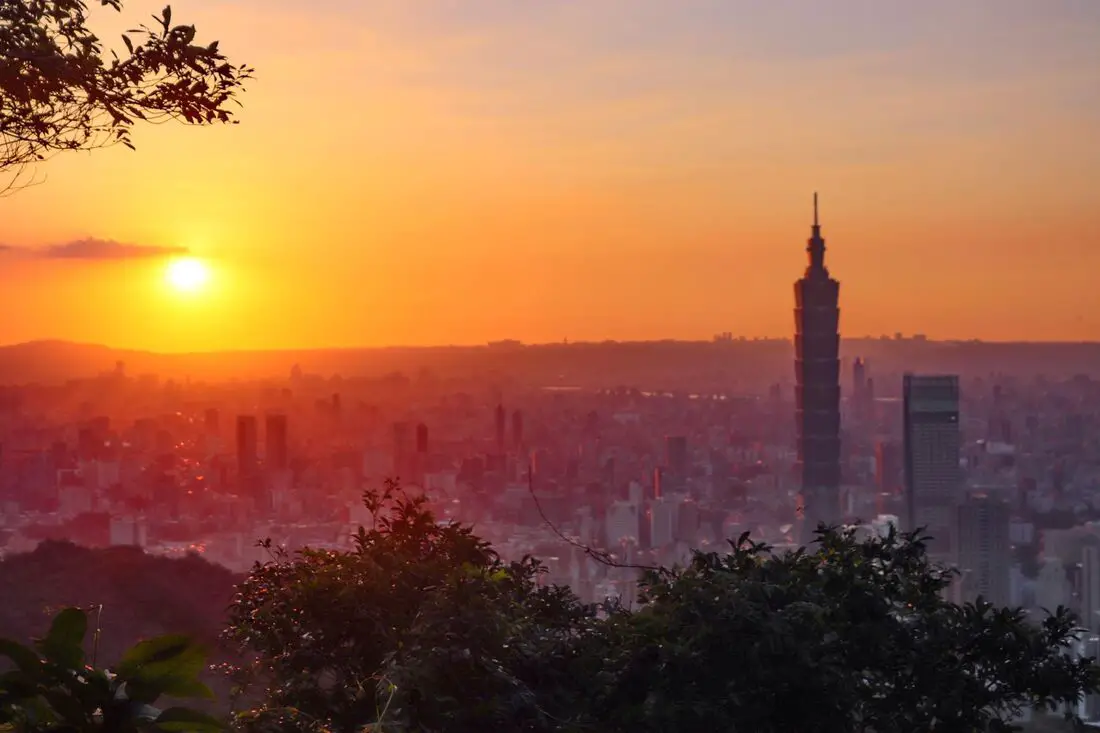

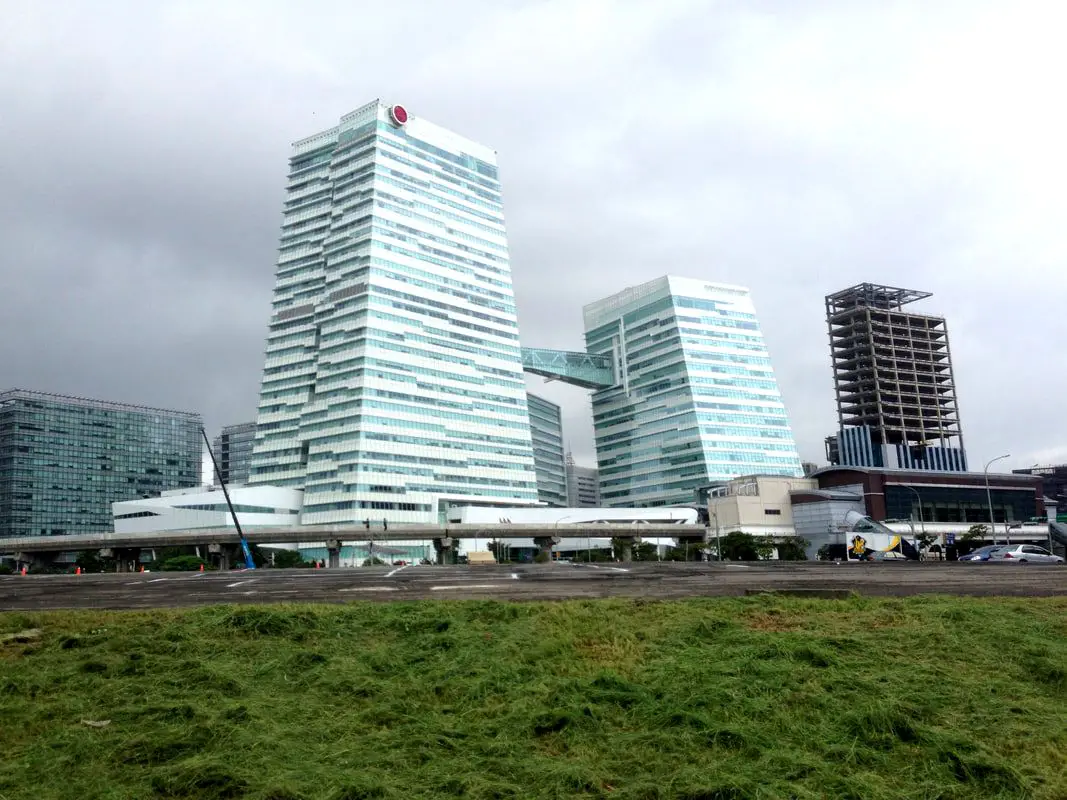
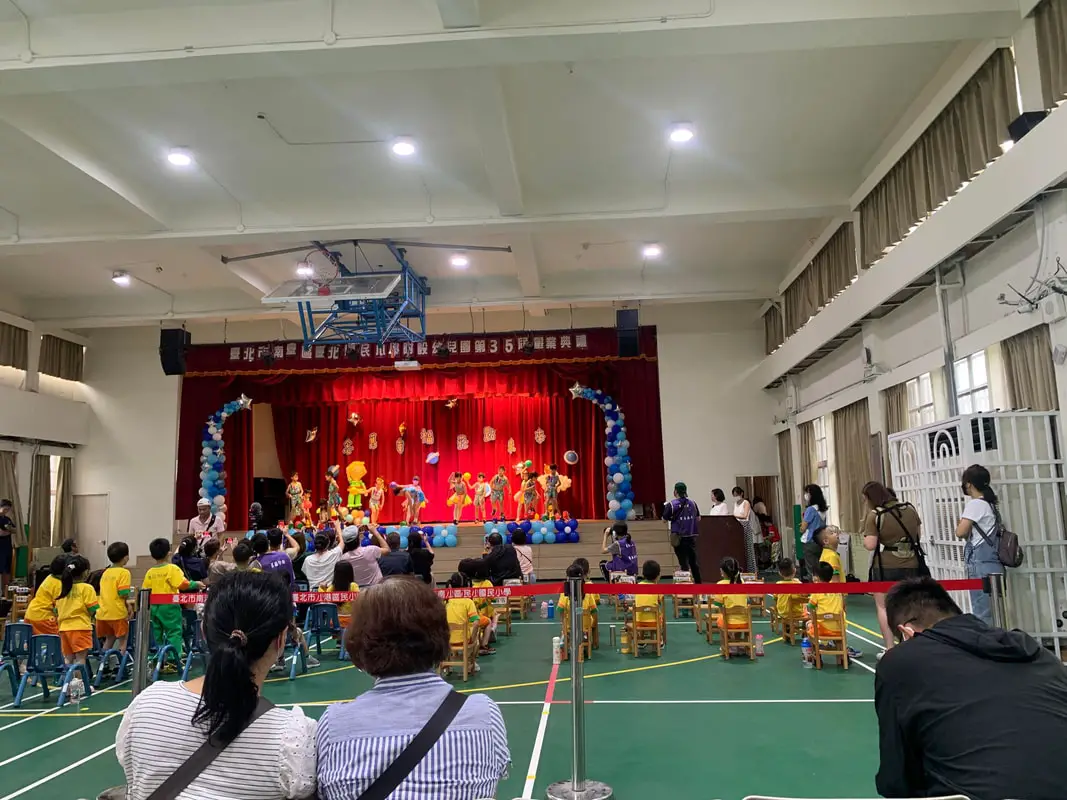

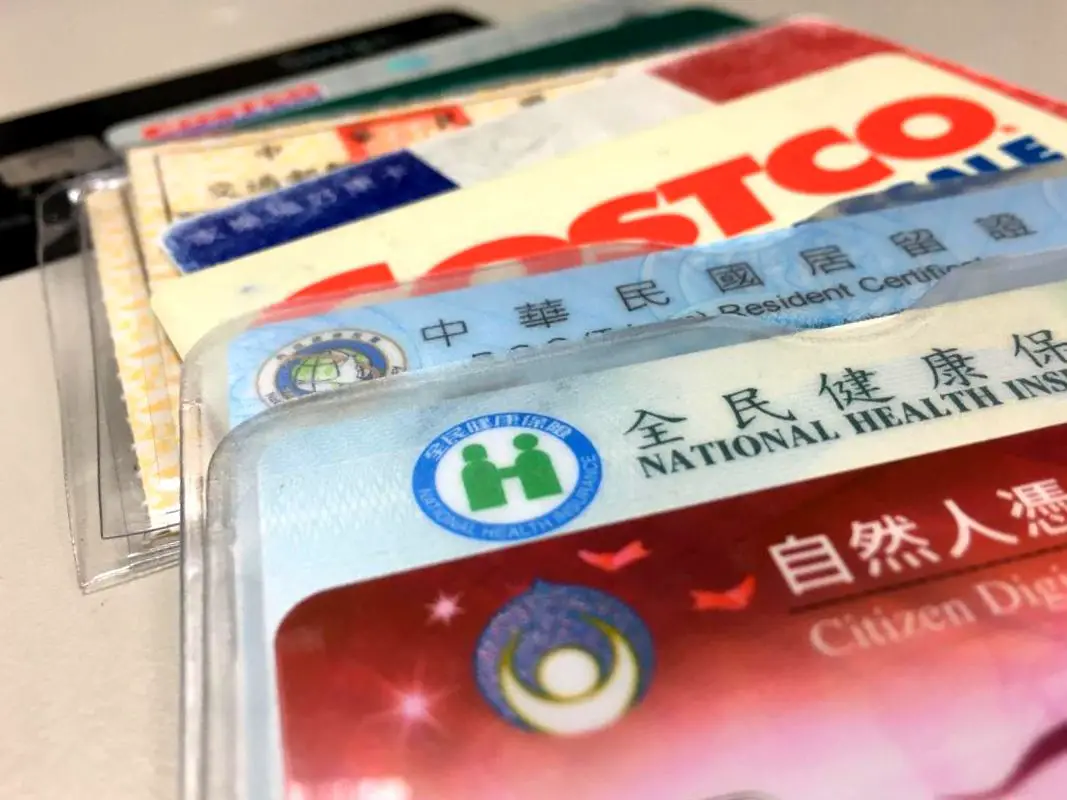
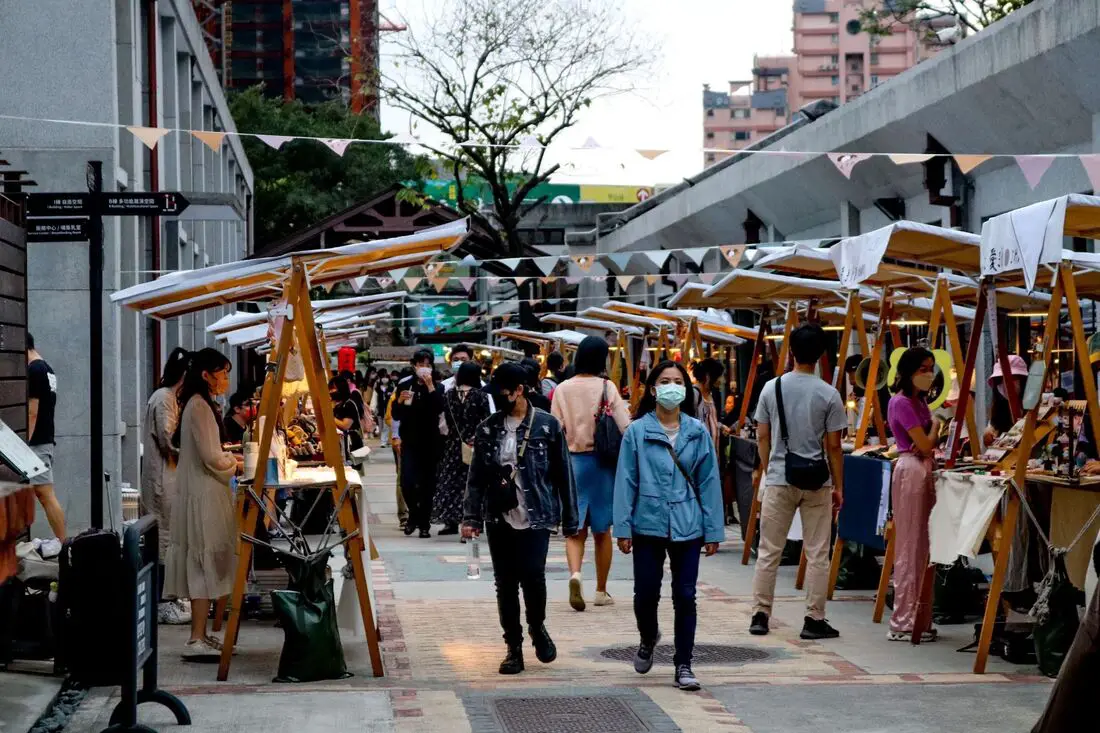
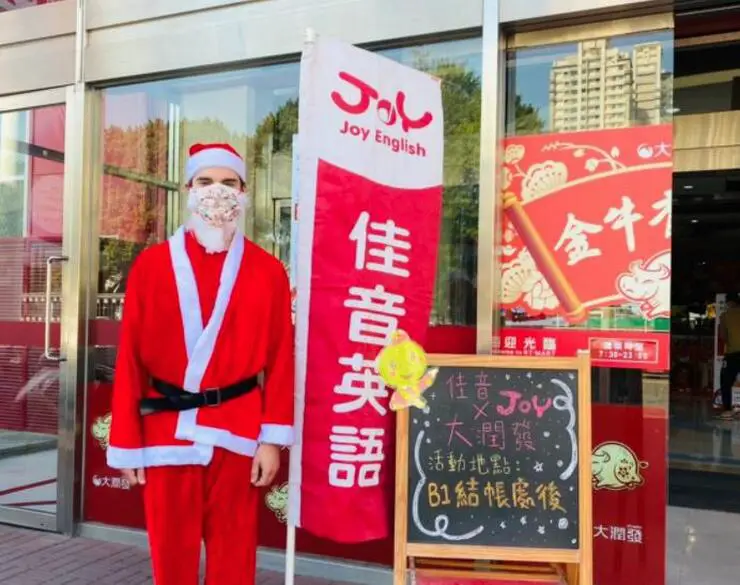
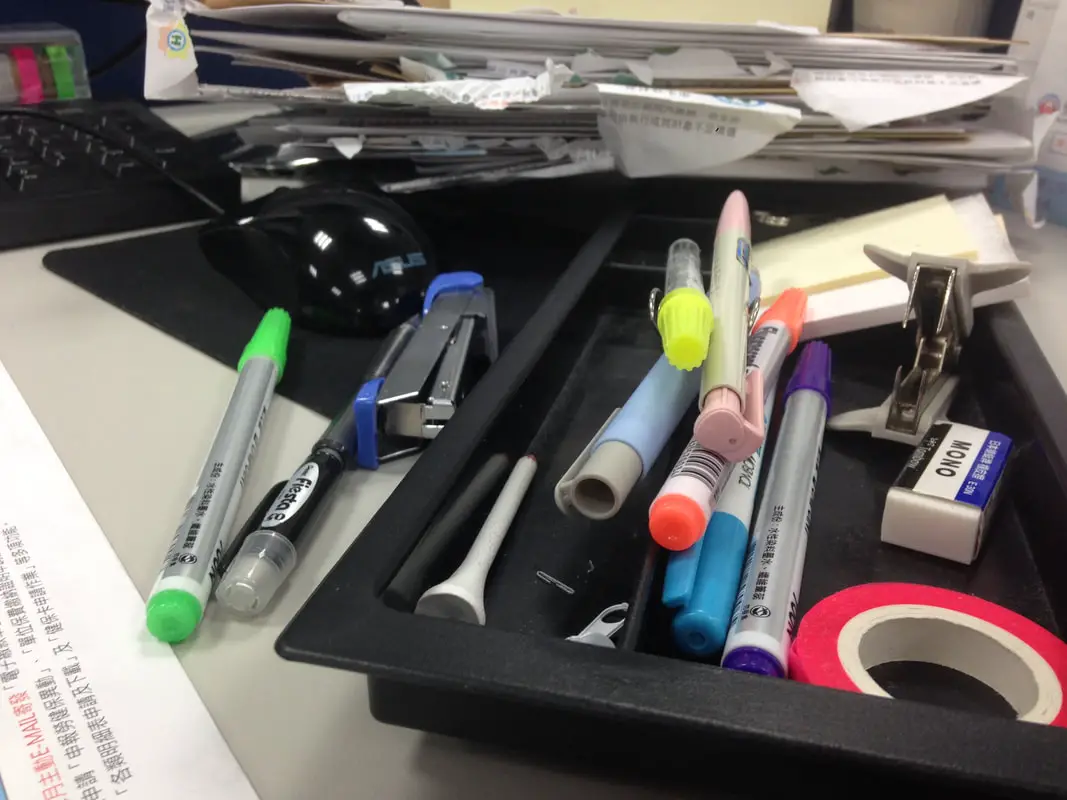
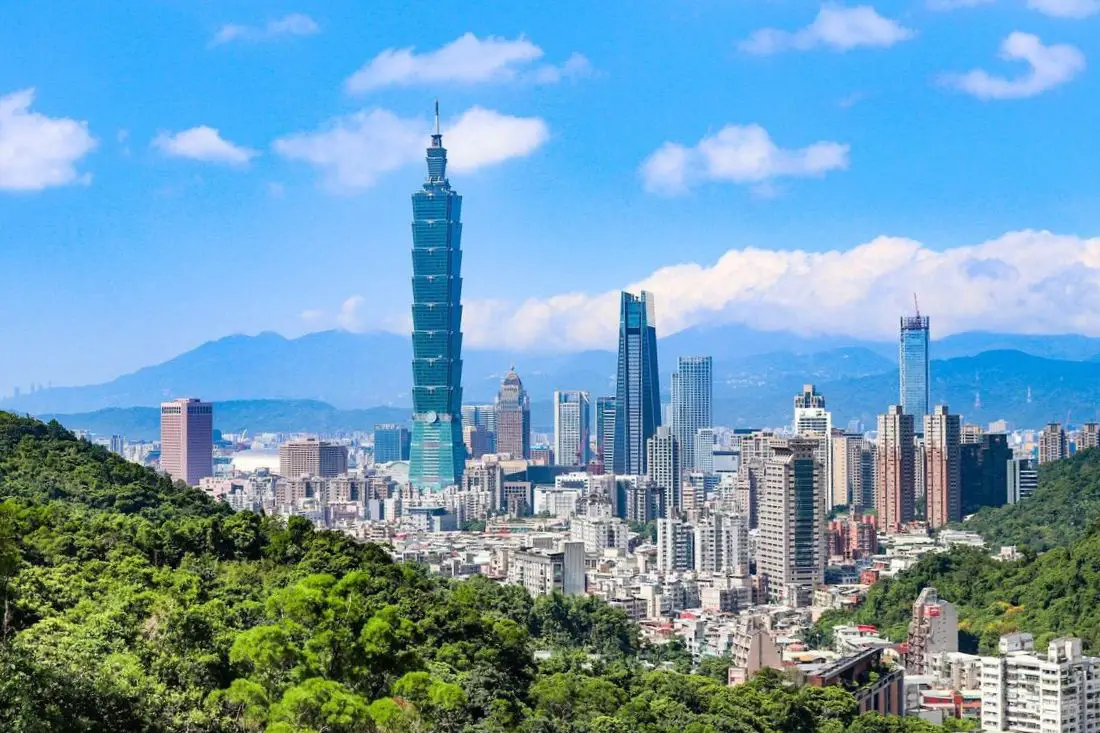
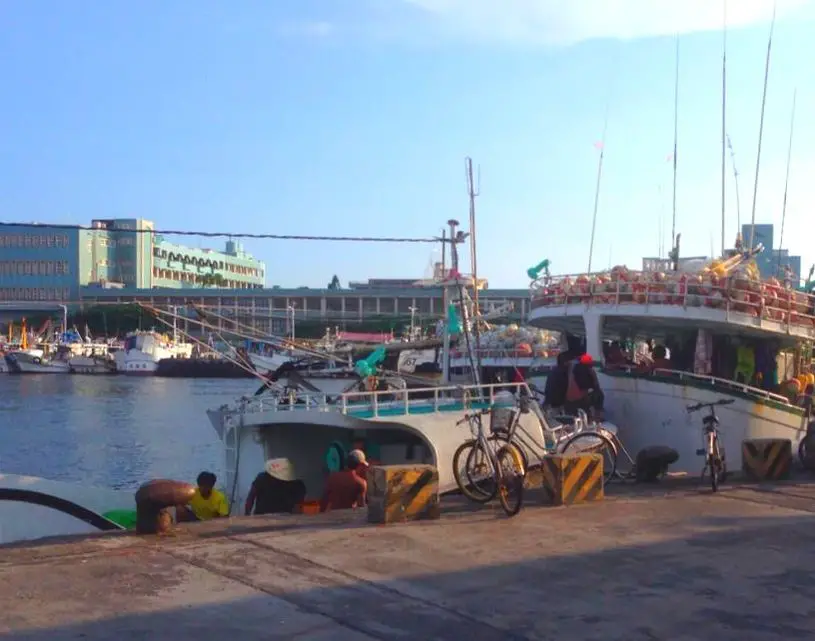
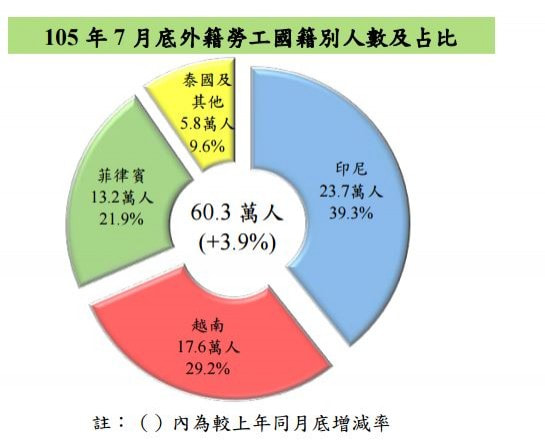
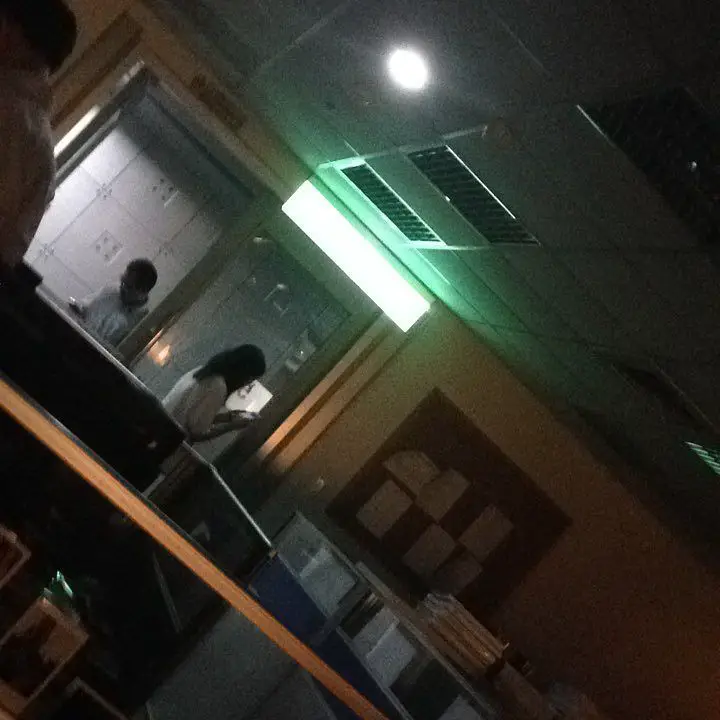
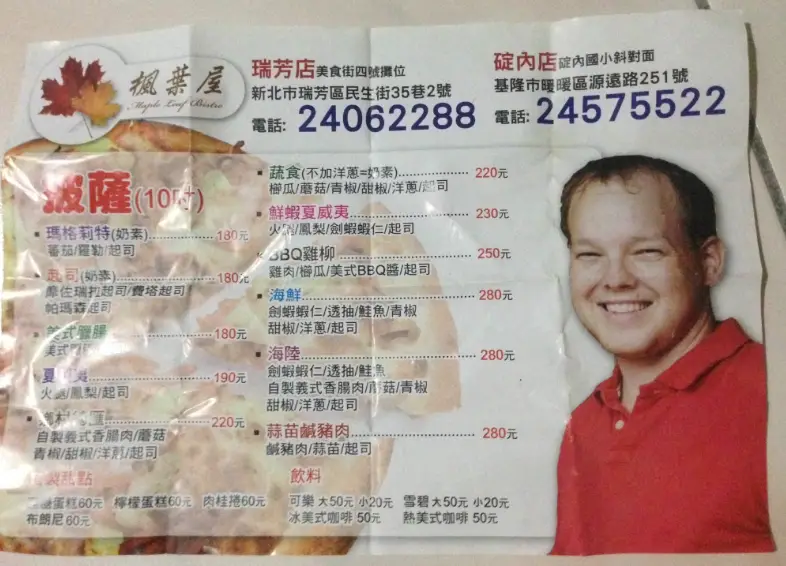
 RSS Feed
RSS Feed